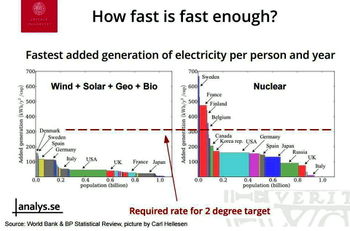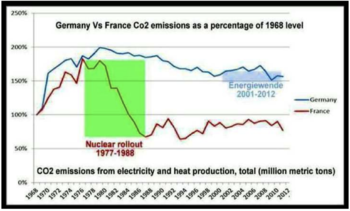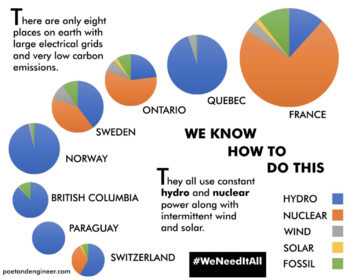Energy policy and global warming: Difference between revisions
Jump to navigation
Jump to search

imported>David MacQuigg No edit summary |
imported>David MacQuigg No edit summary |
||
| Line 1: | Line 1: | ||
{{subpages}} | {{subpages}} | ||
{{seealso|Nuclear_power_reconsidered}} | |||
{{Image|Countries CO2 targets.jpg|right|350px|Add image caption here.}} | {{Image|Countries CO2 targets.jpg|right|350px|Add image caption here.}} | ||
National energy policies have had a profound effect on success in reducing CO2 emissions. Some countries have made substantial progress in meeting the goals they have agreed to. Very few are moving fast enough to limit global warming to 2 degrees C. This article will examine the results of these national policies. | National energy policies have had a profound effect on success in reducing CO2 emissions. Some countries have made substantial progress in meeting the goals they have agreed to. Very few are moving fast enough to limit global warming to 2 degrees C. This article will examine the results of these national policies. | ||
Revision as of 19:19, 4 January 2022
- See also: Nuclear_power_reconsidered
National energy policies have had a profound effect on success in reducing CO2 emissions. Some countries have made substantial progress in meeting the goals they have agreed to. Very few are moving fast enough to limit global warming to 2 degrees C. This article will examine the results of these national policies.
File:Low-carbon-share-energy.png
Add image caption here.


